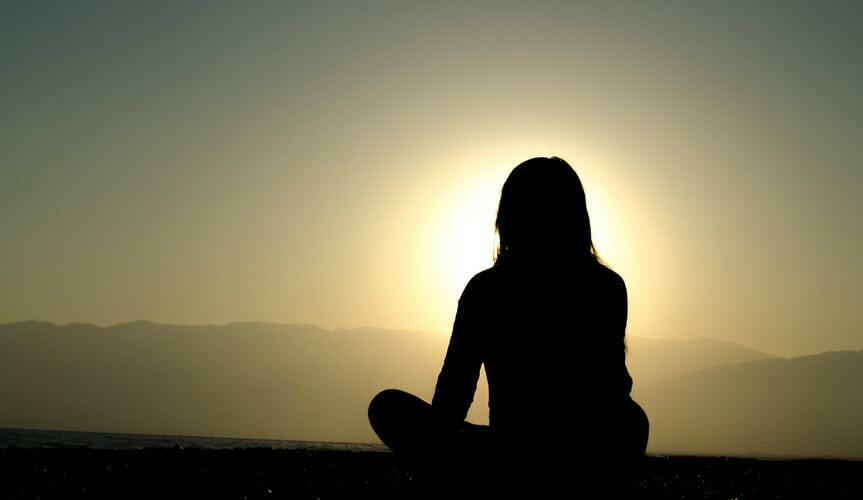Right now, it is vitally important that we adhere to the rules of social distancing, or in some cases social isolation. We are making these sacrifices for the good of the whole, for the survival of people we care about, our communities and our fellow human beings as well as ourselves. The paradox of current situation is that social distancing now is something that unites us all.
The Covid-19 pandemic is already having an affect on our mental health and behaviours. Some people are panicking or acting aggressively, but only because they are scared, and their fight or flight instinct is being activated. Thankfully there are many people out there who – while admitting they, too, are feeling the general concern - are finding creative ways to continue to stay connected and support each other. These are the people we should look to in these troubled times.
It is important to stay informed – ideally through reliable news sites and feeds such as the BBC: time to prune your social media of any toxic or sensationalist news sources, including melodramatic ‘friends’. But perhaps we can minimise information to once or twice a day, and balance with positive messages (Positive News, Good News), such as the Covid-19 effects on the reduction in CO2 emissions, and the natural world thriving in the absence of humans – the dolphins and white swans returning to the newly clean waters of Venice (or Burano), for example.
In the face of such uncertainty, and dramatic moves such as school and workplace closures, anxiety is natural. It feels as though there is very little we can do, and the feeling of helplessness adds to our distress. Yet remember that by simply by maintaining distance and adopting sanitary measures recommended by WHO, we are in fact doing something essential to stem the tide of the virus and help our NHS.
We are not helpless at all. We can reach out to our neighbours – slip a note through their letter box with your number inviting them to call if they need anything or just to chat. We can set up online support groups and make sure everyone remains connected. We can still shop online and send each other gifts or inspiring messages and links to articles, talks or podcasts that have helped us. Social media has its downside, and we can filter toxic ‘friends’ and bullies; but it can also be a fantastic source of new connections, information and inspiration.
We know that cultivating moments of solitude – creating quiet spaces to meditate, reflect and re-connect with ourselves – are important for our mental wellbeing. Some wellbeing experts suggest changing the language of isolation or distance to the more restorative and intentional ‘retreat’ and ‘solitude’. This could be seen as time to take a pause in life and rethink everything; on a larger scale, to change destructive behaviours and rebuild our society for the better. When we are social distancing at home with our immediate family, carving time for yourself can be vital.

At the same time, we must be mindful of the fact that total isolation can affect our mental and physical health. Human beings are social animals: our survival from birth depends on our connection to another person and this remains so throughout life. Social distancing is physical: thankfully we can still interact online, have video calls with our friends and family. If at home with other, you may be forced to work harder on your relationships. Read our guide to good relationships. Meanwhile:
Try to listen to what others are saying, and work out what they need
Take a deep breath if you notice your emotions getting the better of you: journal or go for a walk
If you need to talk to your partner and express how you feel, find a neutral or quieter space.
There are so many things we can do to keep ourselves and others safe in these troubled times, and to share anything we learn from our own journeys, as well as learn from others.
So many distractions, such as travel to work or social obligations, have been removed.
Now is the time to practice meditation, breathing exercises and gratitude, to keep a journal and take time to think deeply about who we are and what we want from life.
We may find ourselves developing new skills, having more time to meditate and do online yoga or fitness classes, to write that novel or make that quilt, things we never found the time to do.
Forest bathing, or rather immersing ourselves in nature through walking and gazing at the scenery, is said to have all kinds of health benefits as well as reducing stress.
We can still go outside: it’s a good way to escape, clear your mind, and get some essential Vitamin D. If social distancing, go for a walk with a friend, just stay 2 metres apart. Studies have shown that gardening helps with depression and anxiety: if you have a garden, spend as much time as you can making it beautiful. Try meditating outside. If you live in a flat, you can cultivate a window garden, make time to gaze out the window at the sky.

Although you may not be going out as much, there’s good reason to look after your skin, hair and body. The psychological effects of simply getting up, showering and putting on nice clothes are powerful. You have not given up. Skincare rituals can be soothing and calming; approach hand washing as a spa ritual, followed by massaging spa oils into your hands. If we can no longer go to a spa, we can at least spa at home or with friends online. Aromatherapy oils are said to have positive psychological effects: light a candle, use a bath or shower oil, a natural scrub or body brush will not only give you a glow but energise your skin. Some say it is good for your immune system, too.
One way of going to a spa (without actually going to a spa) could be reading our Good Spa Guide in-depth reviews; experience a spa and a spa holiday vicariously. Our reviews are designed to give you a fully immersive experience, so take a break from whatever you are doing and pop into the new spa at South Lodge or Bulgari in London.
Read more about our personal experiences at spa retreats in our Spa Spy blogs.
While in reality there is a travel ban, you can go to anywhere in the world on our spa holiday section; escape to an eco-resort in Thailand, the stunning Lefay Resort and Spa on Lake Garda in Italy, and a legendary spiritual retreat in Arizona.
Even better, make plans to visit your favourite spa when all this is over.

Sybaritic Spy
17th March 2020
Spy Likes:
Warm treatment beds; fragrant steam rooms; therapists who listen to what you say; unexpected treats such as back massages that start with hot towels on your feet.
Spy Dislikes:
Small towels; crowded changing rooms; black mould in the showers; therapists who sniff; anyone who doesn't take my lavender allergy seriously - until I'm actually sick on them!
